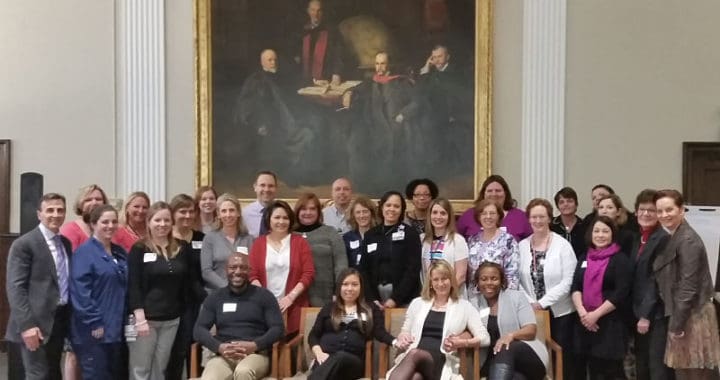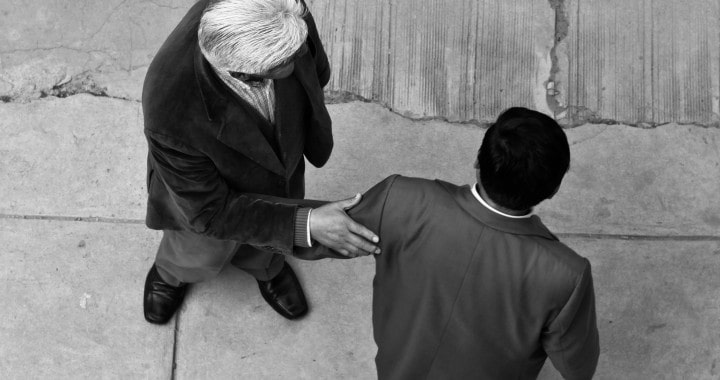Telling the truth can be difficult.
In my work, people ask me to help them strengthen trust in their relationships. I work with individual leaders; other times with teams or entire organizations. Regardless of the scope of the engagement or place in the world I’m working, however, I’ve found that when it comes to trust, the same core issues surface. Among the most challenging of these issues?
A deep-seated struggle to tell a difficult truth.
I once worked with a senior leadership team that was initiating a major reorg throughout the company. As the change unfolded, team members had to be honest about several objectives that weren’t working…about processes that weren’t working…and, hardest of all, about the employees that were to be laid off.
At times, they struggled to share these truths…both with one another and with the people they led.
Time and time again, when the time comes to tell a difficult truth, people tell me they fear they’ll be misunderstood…or blamed…or criticized. Or, that they’ll make other people feel misunderstood, blamed, or criticized.
They’re concerned they’ll diminish their credibility, relationships, and trustworthiness.
Does this sound familiar to you? Have you ever experienced people holding back from broaching sensitive topics with you? Or, have you observed people sharing a comfortable variation of the truth…or a partial version of it?
Have you ever put off a tough conversation because you’ve feared the fallout?
If so, you’re not alone. At some point, we’ve all hesitated to voice our true thoughts and feelings…especially when we think others won’t want to hear what we have to say.
Yet, telling the truth – even a truth that seems critical of someone’s work or idea – can actually build trust and strengthen the relationship…if you step into the conversation and move through it appropriately.
To support you in navigating even the most challenging truth-telling conversations, here are 7 straightforward steps:
1. Set your intentions.
Ask yourself: what do you want for an outcome? And, how do you want to show up during the conversation? How do you want the conversation to go? You may state, “My intent in this conversation isn’t to blame or point fingers. It’s simply to relate what I’ve experienced and communicate the impacts I sense have been created.”
2. Differentiate between ‘the’ truth and ‘your’ truth.
There are two sides to every story. Remember, the truth you tell is your truth – the truth based on your perception. Through framing your conversation as a two-way exchange, instead of a one-way ‘push’ of information, you create room and space for the other person. When people experience this space, they are less defensive. They’re more receptive to hearing your point of view because they know they’ll have the opportunity to be heard, in turn.
3. Acknowledge possible sensitivity.
Offering up what you have to say may be difficult for the other person to hear. Recognize that the words you share will have an impact, and that you take responsibility for that impact. You could use language like, “I want you to know I understand this may be hard for you to hear and take in.”
4. State your perception of the facts.
Be explicit that you’re offering your interpretation of the facts – the facts as you experienced them. Providing this framing eases confusion about what it is you’re communicating. You could say, “This is my understanding of what’s happened. ”
5. Open the door to feedback.
Give the other person ‘the floor.’ Express your openness to hearing the other person’s perception of the facts. Test any assumptions you may have and ask the other person questions. You could say, “This is my take on the situation. What’s yours?” or, “This is how I see things. How do you see them?”
6. Understand the bigger picture.
Context is, truly, king. Seek to understand the bigger picture and unearth extenuating circumstances. Seek the ‘missing pieces’ you may not be aware of. You may consider saying something like, “This is the information I have. Have I missed something? Is there context I don’t have? What parts of this conversation have ‘rung true’ for you, and where do you feel we can further investigate, together?”
7. Engage in honorable closure.
Closing a truth-telling conversation appropriately is as vital as opening it appropriately.
Take turns sharing:
• “Something I appreciated…”
• “Something I learned…”
• “One thing I’m going to work on or do differently…”
More than a ‘formula’ for closure, these statements serve as a litmus test for the effectiveness of your conversation. They answer the questions, “Are we on the same page? Are we both coming out of the truth-telling conversation healthy and whole? Are we aligned on next steps?”
My hope is that this 7-step guide supports you to tell the truth the next time it’s most needed in your relationships…particularly in those relationships you most value.
Yours in trust,
Dennis Reina
Image by AHTmedia from Pixabay
updated August 2025


















